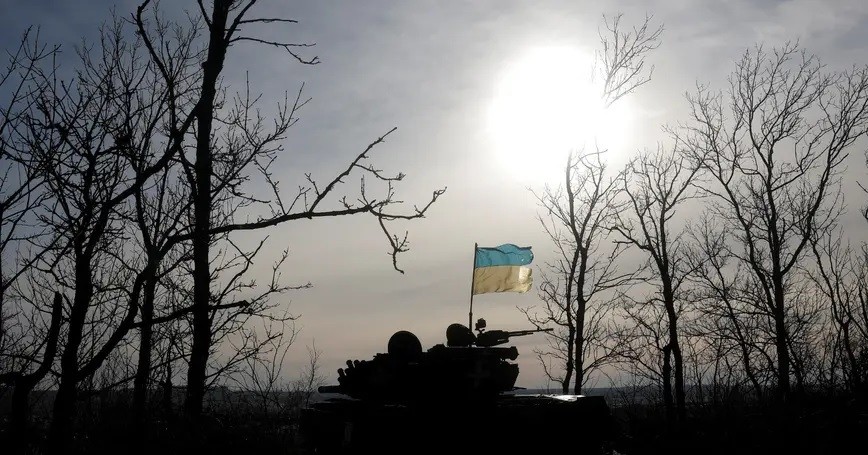 |
| Ukraine's military budget has been overspent by more than half, who will pay the bill? (Source: Reuters) |
From January to July 2023, the total state budget expenditure on the security and defense sector of Ukraine was 969.2 billion hryvnia ($26.2 billion), equivalent to 59.1% of the total budget. In July 2023 alone, Kiev spent 150.2 billion hryvnia, according to data posted by the country's Finance Ministry on Facebook.
The Ministry of Finance of Ukraine noted that the funds are used to provide financial support to military personnel, police officers, and purchase military equipment. In particular, the majority is spent on weapons, ammunition, defense products, personal protective equipment, fuel, food, medical care, and other types of funds to ensure the activities of relevant agencies and units.
Total state budget expenditures of Ukraine from January to July 2023 are 1.64 trillion hryvnia.
Earlier, at the recently held 2023 Conference of Ukrainian Diplomats, Prime Minister Denys Shmyhal said that funding the armed forces and other expenses in the conflict with Russia had cost Kiev about 2 trillion hryvnia (equivalent to 54 billion USD). This figure is equal to Ukraine's budget revenue in peacetime.
Currently, to keep the budget afloat, Ukraine is relying heavily on financial support from its partners, as well as grants and loans. "We have lost about 30% of our economy and businesses. We have lost 3.5 million jobs. In the first year of the conflict, we lost 29.5% of GDP. This is lower than expected. Businesses have adapted and continue to adapt. This year, we expect a slight increase compared to last year," Prime Minister Shmyhal added.
He also revealed that Ukraine's gold and foreign exchange reserves have increased to an unprecedented high. "The national bank now has $39 billion (in foreign exchange reserves). This year, we have reduced the inflation rate to 12.8%, on an annual basis," Prime Minister Shmyhal said.
More specifically, Prime Minister Shmyhal said that in the first half of 2023, Ukraine's state budget collected more than 600 billion hryvnia, while the army was spent 672 billion hryvnia ($24.9 billion).
Giving his diplomats a task at the aforementioned Conference of Ukrainian Diplomats, Mr. Shmyhal said, "in 2023, our task is to attract $45.8 billion for budgetary financing and $14 billion to accelerate the rapid recovery process."
Of this, according to Prime Minister Shmyhal, Kiev has attracted $28 billion this year. Their partners will continue to finance and send reinforcements as the Russia-Ukraine conflict continues.
However, he also warned that when the Russia-Ukraine conflict ends, the level of foreign assistance will decrease significantly. "We will be left almost alone with our problems. The support will be much lower. This needs to be taken into account and maximum efforts made today," Mr. Shmyhal revealed.
Therefore, Prime Minister Shmyhal called on ambassadors to actively work to attract the world's attention to Ukraine, so as not to reduce the level of interest. He stressed the important role of diplomats today is multifaceted and multifunctional, because they have to deal with everything, including weapons, medicines and humanitarian issues. "For me, the diplomatic front is no less important than other fronts. Each ambassador is a "guard" on a diplomatic front," said Mr. Shmyhal.
Regarding aid to Ukraine, in 2022, the United States was the largest foreign contributor to the Ukrainian economy. However, a recent Social Science Research Solutions (SSRS) poll commissioned by CNN found that only 45% of respondents said that the US Congress should authorize additional funding for Ukraine; while 55% argued that Kiev has received enough aid. The US Congress should not continue to authorize additional aid to support Ukraine.
On the European side, the European Union's (EU) cumulative assistance to Ukraine has reached 20 billion euros since February 2022, according to information from the representative of the EU External Action Service Peter Stano. Among European countries, Germany occupies the leading position, followed by Poland, the Netherlands, Denmark and Sweden - countries whose military spending on Ukraine amounts to more than 1 billion euros.
Last month, on July 20, EU High Representative for Foreign Affairs and Security Policy Josep Borrell further announced a proposal to create a special mechanism to pay for weapons, ammunition and military aid to Ukraine, in the amount of 5 billion euros per year, until 2027. This mechanism is expected to supplement the 50 billion euro budget aid package for Ukraine proposed by the European Commission, also for 4 years, to fill the gap that Belgium has called on EU countries to contribute to the community budget.
The European Commission is also planning further support programmes for Kiev for four years, from 2024 to 2027, as the current EU budget planning period ends in 2027.
In response to the above information, expressing concern about the 20 billion Euro funding over 4 years mentioned above, Hungary's top diplomat said it was a "truly shocking" proposal, and warned that this would only prolong the military conflict in Ukraine.
"In short, I can say that they don't really want to talk about peace. What does the EU say? It will be a military conflict zone in Ukraine for four years," Hungarian Foreign Minister and Foreign Economic Relations Szijjarto Peter commented.
Meanwhile, according to the latest information, "big brother" Germany announced that it plans to provide financial aid to Kiev of about 5 billion Euros (5.4 billion USD) per year. In a recent announcement, German Finance Minister Christian Lindner stated that Berlin will continue to support Kiev as long as necessary.
However, according to observers, although Europe has reached initial consensus on increasing military funding for Ukraine, how member states will turn these goals into reality is not an easy problem to solve. There are growing concerns that the EU's common plan will face difficulties due to disagreements among member states regarding financial resources and payment plans.
In the current context, although many EU governments avoided recession earlier this year, the threat of a new recession is now looming over the region. With the economic situation not looking bright, can EU countries reconcile their own interests and reach a consensus, when pressure from Ukraine continues to pour in, while domestic pressure is more or less increasing?
Source


![[Photo] Prime Minister Pham Minh Chinh and Prime Minister of the Kingdom of Thailand Paetongtarn Shinawatra attend the Vietnam-Thailand Business Forum 2025](https://vphoto.vietnam.vn/thumb/1200x675/vietnam/resource/IMAGE/2025/5/16/1cdfce54d25c48a68ae6fb9204f2171a)


![[Photo] President Luong Cuong receives Prime Minister of the Kingdom of Thailand Paetongtarn Shinawatra](https://vphoto.vietnam.vn/thumb/1200x675/vietnam/resource/IMAGE/2025/5/16/52c73b27198a4e12bd6a903d1c218846)


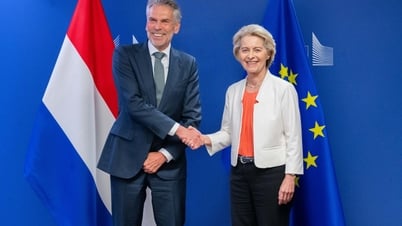

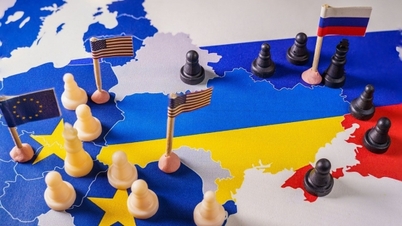


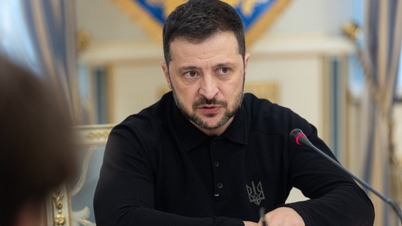


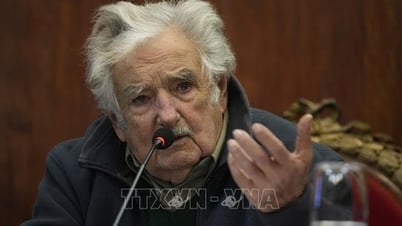

















![[Photo] The Prime Ministers of Vietnam and Thailand witnessed the signing ceremony of cooperation and exchange of documents.](https://vphoto.vietnam.vn/thumb/1200x675/vietnam/resource/IMAGE/2025/5/16/935407e225f640f9ac97b85d3359c1a5)




































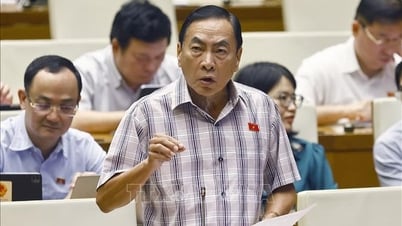



























Comment (0)